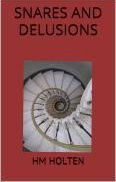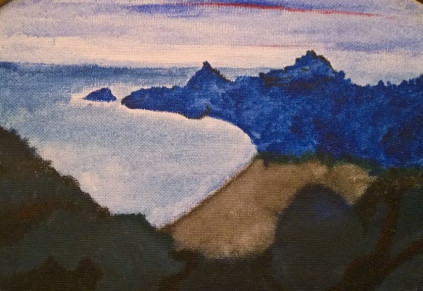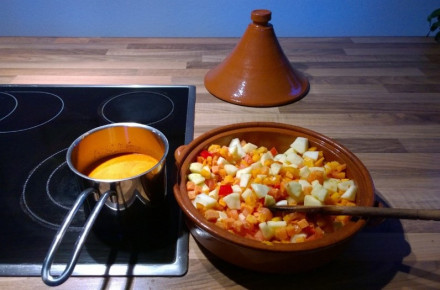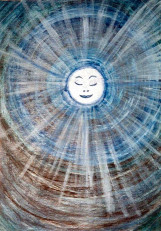H.M. Holten's Blog, page 21
December 21, 2018
Winter Solstice
Dark mornings
Twilit
chill
The
countryside bleak with silhouette trees
Snow falls
Moods
drop
And
sunshine falls off with the tilt of the earth
Bleak are
the days as the midwinter reigns
Humans
need symbols and signs to survive
Lighting
a candle
Or pleading
for warmth
Opposes the fear that lie deep in our souls
Will the sun turn away?
Will
winter prevail?
Then a
glow in the dark
Brings
hope and prevision
And meteor
showers
Proclaim
it will be
A cold
moon can’t stop the manifestation
A cycle
will end, and another begin
The
sun won’t desert us
Aurora
returns
[image error]
© HMH,
2018
December 18, 2018
December 12, 2018
Tim Taylor invited me to share my thoughts on writing, music, painting, cooking, and — last but not least — my publishing journey.
December 12, 2018 ~ T E Taylor
Today I am pleased to host a visit from Danish author Hanne Holten.
Welcome, Hanne. Would you like to tell us about your novel, Snares and Delusions?
First, I want to thank you for this opportunity, Tim. Should I give a
brief idea of the plot? Snares and Delusions is set in the late
nineteenth and early twentieth century. The protagonist, Hedda, faces
her life — and death — in dreams and nightmares. At the beginning a
feisty teenager, Hedda develops into an independent woman, through
traumatic events and brief moments of romance. There are elements of
Norse myths in the nightmare sequences, and I’ve drawn on Danish
folklore about elves in a birth scene.
It’s not always easy to talk about one’s own writing, perhaps because
it’s too close. I suppose one could say that ‘Snares and Delusions’ is
an attempt to get inside the imagination of a character. On the other
hand, one could say that about most fiction writing.
Various authors have commented on the third-person present-tense
writing, but I couldn’t see any other way to do this. If my protagonist
is dying and relives her life in dreams and nightmares, it isn’t
possible to write in first person, because it suggests that she
survives. Neither can it be told in past-tense: my character would be
dead and there would be no story. I must agree with Shakespeare that
‘we are such stuff that dreams are made of, and our little life is
rounded with a sleep’.

To what extent does the novel draw upon your own experiences?
Obviously, I have no personal experience of the historical period. On
the other hand, I’ve relied on my family history, although my
protagonist is invented. The inspiration for this was a real person, but
I know almost nothing about her. She hid her past and was long dead
when I was born. I only knew that she arrived in Denmark from Sweden,
that she had a boarding house, and that she had a daughter. Whether or
not she was married is questionable. Let me just add, that I don’t
think it’s possible to write anything without drawing on personal
experience.
Am I right in thinking that you are working on a second book? What can you tell us about that?
Yes, I’m working on, that is, I’m revising my second book at present.
It falls in three parts, mainly set in The Great War and during the
twenties and thirties’ Denmark. This time I work with two protagonists: a
young man from Sønderborg (then part of Germany). He goes to China as a
volunteer but ends up as a POW in Japan. My second main character is a
young girl who lives in Copenhagen and writes a diary about her life,
her puppy love, and the war as she sees it — from a distance.
Eventually, these two characters meet. They fall in love, but their love
isn’t simple. The climate in Denmark during the twenties and thirties,
the rise of Hitler, all makes their life together difficult. He carries
the trauma of The Great War inside, and she doesn’t understand his
fascination with the German ideas. The third and last part presents the
female character, as a widow looking back on the events of her life.
You’re from Denmark, have spent time in the UK and now live in Germany. Where feels most like home?
Do you know, I can’t really say? Sometimes, I believe that I don’t
belong anywhere. I left Denmark for personal reasons and enjoyed living
in England for fifteen years. Admittedly, I have a certain nostalgia for
that period, but I see little opportunity to return in the current
situation. For me, Brexit is a sad development. There are good and bad
aspects of living in Germany, but the current atmosphere of xenophobia
is, I fear, present everywhere.
As well as writing, you also play music and paint. Which art form means the most to you?
It would be simple to say that every art-form is equally important to
me, but that would be a simplification. I grew up with music as an
essential part of my life — my dream was to become an opera singer. I
did realize that dream to some extent but found that my calling veered
in the direction of teaching. This I continue to do.
Although I always loved the fine arts and dabbled a bit in drawing,
painting came later. When I first moved to London, I missed having
pictures on my walls. I couldn’t afford to buy them, but I had some
colour and brushes. In short, I started painting my own art-work and
quickly developed my personal style. Painting is something I do with
great pleasure, but my other activities — and the frequent lack of
natural light — put it in the back seat as it were.

Always an avid reader, I started to write early. There have been times
when I couldn’t find time to write regularly, but during my years in
England, it became a necessity for me to write every day. I made many
false starts on writing my first novel. It took years before I dared to
believe it could be published. I don’t think Snares and Delusions would
have appeared if I hadn’t joined Authonomy — up to that time, I had no
feedback and felt hampered by insecurity and — procrastination. That is
a thing of the past now, I mean the procrastination.
What else is important in your life at the moment?
Cooking! I love to eat well — and a healthy diet is necessary to keep going.

Like most freelance writers, I must earn money besides through my
writing. The teaching paid well during the first years I lived here, but
then my job fell through. That’s another story. Suffice it to say that
the number of students fell, but that I still have some loyal and
promising pupils. To close the income gap, I administer two holiday
flats in the house where I have my flat. The workload differs with the
seasons but tides me over.
Friends and family are spread wide, so social media plays a large role in my day to day interest.
Finally, what question would you have liked me to ask that I didn’t?
There are always unanswered questions — and always questions we don’t
ask. It’s difficult to think of something right away but give me a
moment, and I might come up with something. I think we’ve covered most
of what is important in my life, unless you’d like to know something
about my publishing journey?
And what is the answer?
I believe that everybody is aware that getting a publishing deal with
one of the major publishing houses is next to impossible unless you
know some high animal — are a celebrity — or have a viable platform (a
successful blog or another internet prominence). When I started
submitting the former version of my book to literary agents: it was then
Of Foes and Friends, I had no idea of this except a vague feeling that
it might not be easy to get recognized. The theme for my book, or rather
the Scandinavian setting might not interest a large audience. Having
said that, I chose that setting for obvious reasons (being of good
Danish stock) and thought it could appear exotic. Anyway, that brings me
back to Authonomy and the feedback, which made me realize that there
was plenty of plot gaps in the ‘Foes’. In other words, back to the
writing desk. I rewrote most of the book and that version received
admiration — but still no contract. That was when I decided to go indie.
I took the plunge straight away. Only to realize that I hadn’t followed
the advice that abounds for indie authors. That’s when I started my
blog. Being unsure about how to do it, I started two blogs that I later
united. A year on, there are still lessons to learn, but I know a lot
more than I did. Learning by trial and error isn’t always the easiest
route to take, but I don’t regret anything but my own naivety at the
outset.

Thank you for those fascinating answers, Hanne. Good luck with your writing!
You can learn more about Hanne, and Snares and Delusions, through the following links:
December 7, 2018
Getting the Blues
[image error]
Mr McHeath, the would-be rock-star,
Plays his bass and scorns the black ‘dots’
Travels abroad to practise the riffs
But fate disappoints him:
His chords go amiss.
Later, back home he takes up his career.
His band plays small gigs
Mainly heard by his friends,
His drinking companions,
A rock-chick or two
But day-jobs give bread and the butter to boot.
Great disappointment soon sours the mix
So, Mr McHeath turns to art-work for slicks.
Nothing will come of his dreams,
His pursuits:
His sump runneth over
Drain bottles and dirt
His life ends with closure:
Indecent exposure
[image error]
From Wimps and Pimps
© HMH, 2013
[image error]
November 20, 2018
The Snow Queen
November 9, 2018
Modern V. Old-fashioned Writers’ Methods
Some people believe that writers of old were more accomplished — and wiser — because they wrote by hand. In their opinion, modern authors lack flair because of using PCs. Even worse is it that these ‘modernists’ connect via the internet: such lovers of the quill believe that indie authors spend so much time dallying on the social media that it’s a wonder they get any writing done. To round off the quill lovers’ rant, they accuse the internet active authors of being second-rate: good authors who naturally are traditionally issued should only connect with their kind of authors etc, etc.
This is maybe an important discussion, but it isn’t one I can undertake with somebody who is against modern technology. It is notable that there are some authors who like to make it appear cute if they find it difficult to format manuscripts for Kindle or build a website. Others feel at home with the technology. It makes no difference in the end. What is important is only what an author produces. The number of books may vary, the publishing methods, the writing process is individual. The main issue is clear to me: whichever way they do it, they write. The average author writes, rewrites, revises and formats until he or she turns bald or wrinkly. But they write. They do it because they must. The thoughts, the ideas, and the stories in their heads must out on paper, or they’d go crazy. They make every word count and couldn’t care less in what way they get their words onto the page.
I believe that Charles Lutwidge Dobson, better known as Lewis Carroll, wrote Alice and Through the Looking Glass in purple ink. It may be less well known that he invented a ‘nyctograph’ a writing tablet that enabled him to write in the dark. The device consisted of a gridded card with sixteen squares and a system of symbols, representing an alphabet of Dodgson’s design. To make this work, he used letter shapes similar to the Graffiti writing system on a Palm device.
My point is that even nineteenth-century authors dabbled with technology. This is one of many curious facts about what writers do to transform their thoughts and ideas into something readable and enjoyable. Why would anybody care how we do it, as long as we write?
Last night, when I’d finished my ‘guilty’ media jaunt, there was some necessary research to do. That didn’t stop me from writing. Thank god for the internet. It helps me and, anybody with a search engine, to find the most curious facts. There’s no doubt that today’s writers easily get noticed and risk looking suspicious because of their search-habits.
Until last night, I didn’t realize how scarce the information on South Jutland POWs in Japan during the Great War is. I found a prisoner’s card in a Danish archive: it shows the name and birthday of this Japanese POW and that he went on the Mitau. That ship was almost impossible to track. . .
My other task, I found it even more difficult, searching for adequate info about Danish naval uniforms in 1919. It may not figure in my WIP, but it helped me to get going. At the end of the evening, I’d written a reasonable chunk of the scene and have something to go from tomorrow.
© HMH, 2018
November 1, 2018
Halloween
Abandoned house of cobwebs
Haunted and old.
Walk past,
Quicken your pace
In the dead of the night
What happened here?
Who can tell?
Sighs embrace the unwary
And whisper dread secrets
Once every year
A glow appears
Behind broken windows
Wispy forms glimmer
In the moonlight
And invite you to dance
The black cockerel sings
And the black fiddler plays
Will you last the night?
© HMH, 2018
October 26, 2018
Reflections
October 15, 2018
About time and eternity.
Wouldn’t it be great having plenty of time to do exactly what one wants to do? Those days are gone, but they may still return. We live in hope, or so they say. Who’s they? There’s always a ‘they’, claiming deep insights and profound knowledge. Wouldn’t it be nice to be such a ‘they’? Perhaps it’s overrated like so many unachievable feats. Don’t we all haste to catch up with time? How silly is that? It must be one of those natural laws.
Very few people aren’t on some kind of schedule. Perhaps, that is a good thing: how many would be able to structure time, given complete freedom to do what they want? Still, we dream of being free to decide. The question is, if we ever have that freedom. We live in a social structure for better and for worse. Freedom is perhaps the greatest illusion. Time is part of the prison-bars surrounding the said freedom. Is a mayfly happy? Who can tell, but people are rarely perfectly happy. People are rarely perfect, maybe that has something to do with this. I digress.
Time and eternity. There’s something absurd about this: eternity can’t be measured, yet we try to do so through man-made divisions, seconds, minutes, hours. Admittedly, there’s a reason why. After all, we have two factors, namely, day and night although the length of days and nights vary with the year. Unless we stay at the north- or south-pole. There the day lasts half a year and the other half is night. At least that’s how it looks to a lay-man (or woman).
How can we hope to get to grips with time? We manage time, we have time-tables and schedules, but trains get delayed, flights cancelled, it’s next to impossible to boil an egg to anybody’s satisfaction. Here it may be a good idea to give a recipe for toast: when it burns it needs two minutes less in the toaster. Not so simple. No wonder so many plays with the idea of time travelling. On the other hand, would it be preferable not to have time? Can one conceive of timelessness? The first objection lies in our hearts, in our pulse. Without a pulse we don’t live, without life, we don’t exist. Pulse is Rhythm, pulse is life, it is the ticking away, second for second, of our little lives. And so on.
Tick-tock.
© HMH, 2018
October 10, 2018
Real Life Wimp
Forced into marriage and out
Hapless and gormless
Everything goes:
Career like nil
He takes to swill
Herbal teas and veggie meals
Making a temple out of his body.
Surprisingly, fat quills from every pore.
Dreams of eternal youth evaporate
As quickly as his weight grows.
His only redeeming feature is
His kindness, which
Only lasts until you get
Up, close, and personal
That sends him straight back to his shell
Where he resides like an old weary turtle
© HMH, 2013



